Those of us who have been following Russian political and military aggression over the past few years have become used to and blasé about nuclear sabre-rattling emanating from the Kremlin.
However, the latest outburst from Sergei Karaganov, close adviser to Vladimir Putin, breaks new ground in its outlandishness.
Showing clearly just how he has earned his sobriquet of ‘Professor Doomsday’, Karaganov has apparently stated that Russia should deploy and explode a nuclear weapon to intimidate Britain and its Western allies to bow to Putin’s international political demands.
This article is the opinion of the author and not necessarily that of the UK Defence Journal. If you would like to submit your own article on this topic or any other, please see our submission guidelines.
Presumably, by this he means initiate a nuclear device somewhere nominally neutral, for example in the Arctic, in a show of strength to demonstrate the Kremlin’s reach and power. He will be only too aware that doing so anywhere else would have much greater consequences.
While it is always dangerous to dismiss such hyperbolic rhetoric completely, the truth is that what he has said is bluff, brinkmanship and arrant nonsense. There is absolutely zero chance of his threat being carried out.
Why do I say this? Well, primarily because if Russia did, it would unleash a sequence of events over which it would have no control. Aside from international condemnation of a nuclear device being exploded against international treaties and all common sense, it could also lead to an escalation of hostilities possibly leading up to full-scale war with NATO.
Russia and Putin do not want this, because without doubt they would lose.
So what’s behind the threats? Rather than a sign of strength, they are in fact a sign of weakness, and an acknowledgement that the Ukraine war and concomitant Western sanctions have backed the Kremlin into a position where it is abundantly clear it cannot win.
I have lost count of the number of times Putin has threatened retaliation of some sort to various Western actions, whether it be support and training for the Ukrainian military or, more recently, the public conversation about whether the USA might supply long-range Tomahawk cruise missiles to Kyiv. This latest threat is a typical knee-jerk reaction to the prospect of American-supplied weaponry striking deep into the Russian hinterland.
Yet spokesmen like Karaganov still follow the same playbook, and they do so because timid politicians in the West often cower before the threats instead of being robust and calling the Kremlin’s bluff, for that’s exactly what it is.
We can look to history for examples of how the Russian Bear’s claws were clipped. Those of us of a certain age might just remember the Cuban Missile Crisis of 1962, a stand-off between the USA and the Soviet Union which is considered to be the closest the world came to a full-scale nuclear exchange during the Cold War.
US deployment of nuclear weapons to the UK, Italy and Turkey was countered by the Soviets seeking to place the equivalent in Cuba, on the USA’s doorstep. US President John F. Kennedy ordered a naval blockade of Cuba and intercepted ships carrying missiles to Havana. After some tense moments, Moscow backed down and agreed to remove its launching facilities in return for some concessions from Washington.
More recently, in the 1980s, US President Ronald Reagan’s confrontation with Moscow involved a “strength and dialogue” approach that included a massive military build-up and strong anti-Soviet rhetoric, alongside a willingness to negotiate.
Initially, Reagan characterised the Soviet Union as an “evil empire” and pursued a military build-up, which many believe pressured the Soviet economy and made them more willing to negotiate. His stance shifted when the more dove-like Mikhail Gorbachev ascended to power in Moscow, after which followed a series of summits and a focus on arms reduction.
In neither of these cases did the USA (and by association its NATO allies) back down, and Moscow relented, suggesting that strong and unbending political and military diplomacy was a language the Kremlin recognised and understood.
Compare and contrast with today’s transactional business model espoused by the Trump administration, where sealing a deal seems to be the favoured White House paradigm and Trump flip-flops from day to day in his relations with Putin. For the Russians, that is a sign of weakness, and while it persists they will see little reason to change.
And so I believe that the approach to the present Russian scaremongering should revert to the days of Kennedy and Reagan. We in Britain need to recognise that there is zero chance of Russian nuclear weapons exploding over London, Birmingham or Glasgow, because it would lead to the end of Putin, Moscow and Russia in quick succession.
But having political leaders who are not wilting violets on the international stage and who are prepared to call out the hyperbole coming from people like Karaganov might help us all sleep easier in our beds.


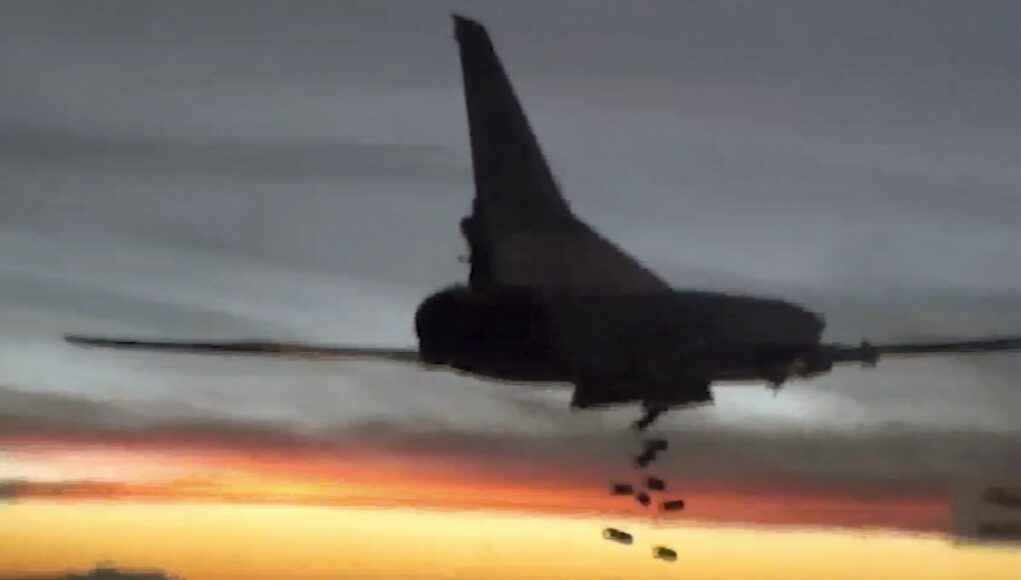

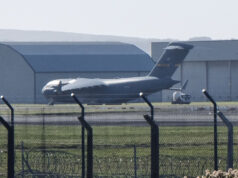


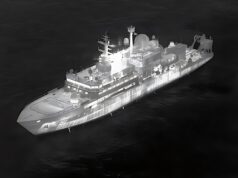
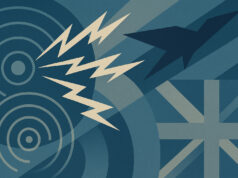



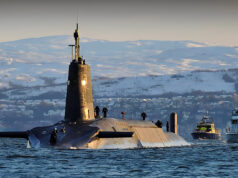

Sadly there are too many of our MPs who would be classed as lacking moral fibre, if Russia did do something this stupid. I think the same could be applied to a number of our NATO partners MPs. Who would rather kowtow to Russia’s demands, when they start pulling the sabre from the sheath.
Perhaps something a little more worrying is Russia newish cruise missile, the 9M730 Burevestnik or in NATO speak the SSC-X-9 Skyfall, which is a nuclear “powered” cruise missile, with a thermonuclear warhead. After a number of unsuccessful launch attempts, apparently the latest trial proved that it could fly some 14,000 km for 15 hours, by the Russian General Staff. Which could be taken with a inch of salt. However, there have been several infrastructure changes to a number of sites, that look to house the launch vehicle and storage sites. Independent reporting has shown that the missile has at least managed a 8500km flight, which in itself is worrying. Apparently this thing is designed to loiter for a day, before heading for its target. But its also the radioactive shite, that is propelled out of the exhaust when its flying is also a worrying thought.
This is one of those weapons that could be launched from inside Russia and can easily reach the UK. Whilst transiting over land or sea at 50m, will make it hard to spot and take out. This is what the Wedgetail was invented for and we are only getting three!!!
Does this vector changes anything regarding the strike capabilities of Nato?
Is a long range cruise missile unstopable? For Russia, it is difficult to stop a storm shadow. We have Aster, we need more of them.
No it shouldn’t change anything for NATO. However, there is a possibility of using the Burevestnik, in a coordinated strike. Where they are launched and loiter, waiting for the “go” time, to saturate a target using a simultaneous time on target type of attack. Thereby making it considerably harder to intercept.
The key asset needed to counter this threat is airborne early warning. That has a radar with at least 400km detection range, ie the E7 Wedgetail. It can then coordinate a counter response to the attack, via Typhoon, F35 or land/ship based surface to air missiles. .
I’m pretty sure a nuclear powered missile would be quite easy to find it would be belting out radiation I’m also sceptical of its use why need it as I’m pretty sure Russian ICBMs can already reach every part of nato territory
Just read about the Russian nuclear powered torpedo, Poseidon, on Defense Here. Inch of salt there too. A range of 10,000kms and 185 kph? While spewing out nuclear exhaust?
I simply don’t get it, if Karaganov was a “Professor Doomsday” , then your dareing of Putin to nuke London, Birmingham or Glasgow is like prodding Putin to lose his sanity and thereby proving that you are no different. Kennedy and Reagan were though on the front but were accommodating at the back but Trump is attempting the reverse because he abhors wars and knows fully well that if he starts one with Russia then it won’t be an Iraq, Libya or Syria and he would certainly lose, as Ukraine is already revealing !
Russia is falling appart in Ukraine. A little bit here, a little bit there. And the west is just gradually mobilizing to limite the humiliation inflicted. USA are simple not involved in Ukraine.
In less than a year, Russia which spend 10% of GDP in this war will be outpaced by European Nato spending 2,6% of GDP… Since Russia isn’t the threat, let’s look at who use them…
You may be right about the quantum of GDP extended by NATO in it’s Ukrainian front but when it comes to translating the bucks to the biggest bang Russia usually comes out top ! In the strategic spot market they currently boast the most sophisticated hypersonics while Ukraine is poorly supported with arms only fit for side shows !
Another meaningless threat – if Russia did such a thing it would be further isolated and loose what little support it still has. It would not intimidate NATO or the UK as they could retaliate with nukes if attacked by nukes. Russia is getting desperate but rgey are not mad, Putin does not want to die in a nuclear exchange with UK/NATO.
Let us all remember that the Cuban crisis should have been a nuclear war. Only a Russian sub commander refused to fire his nukes was tremendous luck for the world. I have no doubt if Russia is desperate, they will go nuclear. Any one, any country that is cornered, must fight back. It is nature, the human animal is no different.
Wasn’t this mostly just in response to Trump’s own “we will resume nuclear testing” comments?
Britain needs to update its nuclear deterrent for European deterrence. It should add 300 ground launched and sublaunched nuclear cruise missiles financed by Germany.
France should do the same.
Would be enough in case the US goes awol.
So Sergei toilet cleaner has made a rant about nukes. So what, and who really cares.